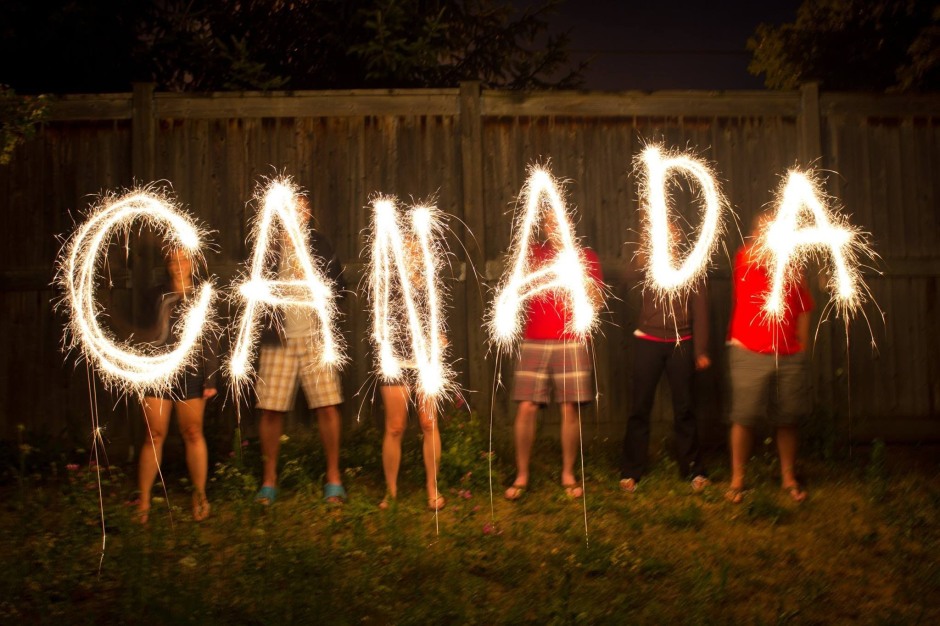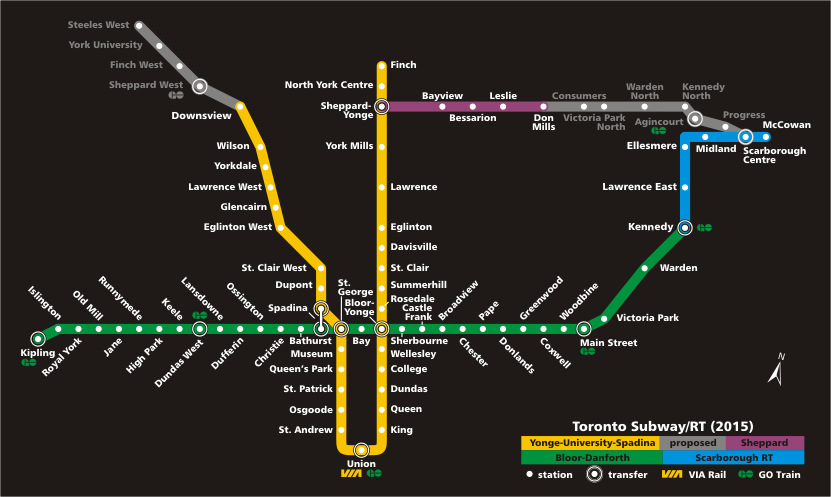It’s been a hot minute, but we’re back! If you’re new to the Toronto (AKA the 6ix), then this is the place for you. In the coming weeks I’ll be posting articles on anything and… More
Albanian Born, Canadian Raised
Marvin was born in Elbasan, Albania, and moved to Canada when he was only eight years old. Although I usually only post about people who have been in Toronto for ten years or less, today I thought I would take a different perspective and see what it’s like for people who grew up here in surroundings much different from their parents.
So first things first, why did you come to Canada? And why Toronto specifically?
We came to Canada because it offered better opportunities and education. There was nothing specific about Toronto aside from it just happened to be the place we came to.
How long have you been living in Toronto for?
About 16 years now.
What do you do now?
At the moment, I’m a masters student at Ryerson University studying biomathematics.
What were the early years like for you and your family?
The first few years were difficult, but as time progressed it became easier. When we first came here we stayed in a one bedroom apartment, and I remember sleeping on the sofa for a while. Luckily, my aunt moved here before us so it was a lot easier to get settled.
Biggest struggle you faced when you first came to Toronto?
Like most people, it was the language barrier. It was easier for me to learn because I was young, my parents had a harder time
It seems like family played a big role in your move here. Do you still have family in Albania?
Yes, my grandparents are still there along with some aunts and uncles. I’ve never been back, but they like to visit once in while. I’ve lived in the same neighbourhood since we came here, and while we do like to be near family it’s also because a lot of our family friends from Albania live here as well.
What was it like growing up here for you? Did you have any trouble adjusting to school?
No, not really. The school system here is very welcoming to newcomers, and my school offered ESL classes for new immigrants. There were a lot of Albanian kids at my school too, so we all pretty much grouped together naturally and became friends. We’re all still close friends and live in the same area – but of course, we have friends from all cultural backgrounds now.
I think the European culture has remained strong in our house because my parents did not grow up here, so as a result they were more lax in some areas, for instance letting me drink before I was 19, but were stricter in some other aspects. My younger brother, on the other hand, was born here and he gets everything!
So You Want To Be Canadian, Eh?
Becoming a citizen is the next step for many immigrants who have decided to call Canada their home. Of course, most of the information you need to apply for citizenship can be found online, so there’s really no need to repeat that information here (the process is long and involves substantial paperwork).
That being said, having become a citizen in August 2014, I would like to share with you three fond memories from my citizenship journey.
1. The Citizenship Test
Do you know how many electoral districts there are in Canada? The answer is 308.
Don’t feel bad if you didn’t know that, the only reason I do is because it was an actual question on my citizenship test (along with questions of who founded hockey, and the history of the Peace Tower).
If you’ve successfully applied to be a citizen, the next thing you will receive is a notification that you’ve been summoned for a citizenship test, along with a study guide.
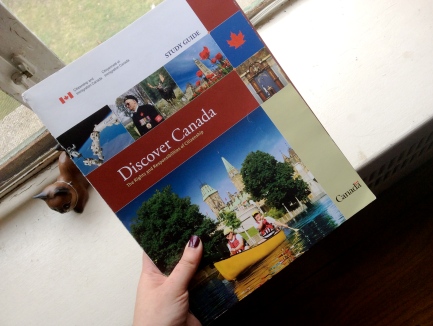
Preparing for this test was one the most exciting parts of the entire process, simply because you learn so much about Canada and get to show off your knowledge.
There are different ways to study for this test. If you’re super studious like my Mom was, you can spend weeks reading this booklet, highlighting and making little notes in it. If, on the other hand, you’re pretty confident (read: lazy) and know the basics of Canadian politics and history, you can probably just read the book once and google “citizenship Canada practice tests.” I mean, we both got 10/10 in the end, so it’s really up to you.
Word of advice though, don’t even try to cheat from your family members taking the test alongside you. Not only will it lead to dire consequences, everyone is given a different test anyways, so your answers will all be wrong.
2. The Citizenship Ceremony
This is it. The big day.
The crown jewel of the citizenship process is without a doubt the swearing in ceremony. On this day you will see soon-to-be Canadians of all ethnic backgrounds gathering to take a pledge that will change their family history. There isn’t really a formal dress code, but most people tend to dress up for the occasion, some more than others. For instance, I saw one family dressed in full-on suits, including the baby, and another woman wearing the most beautiful sari I had ever seen.
The actual ceremony itself is pretty quick. After swearing the oath and singing the national anthem, everybody gets called up one by one to receive their citizenship certificate, shake the judge’s hand, and then sign some documents. After that, the judge will give a moving speech about being Canadian, and then everyone lines up to to take a tonne of photos with her and the Canadian flag (like tourists, ironically).
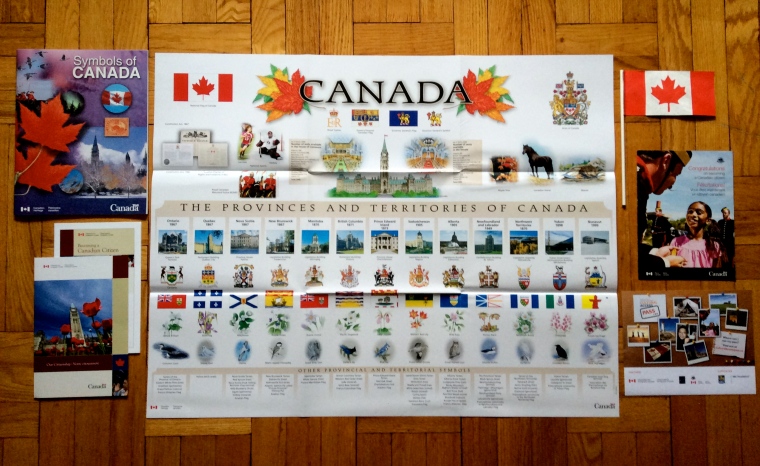
Since Canadians are so generous, you’ll also walk away with a swag bag full of goodies – a starter pack to becoming Canadian if you will. These include a mini Canadian flag, a book and poster of Canadian symbols, a 50% off VIA Rail discount coupon, and a Cultural Access Pass that gains you free entry into any Canadian museum and park for a year. The pass was particularly useful and I miss having that most of all.
3. The Aftermath
I remember my friend, who had been a PR (permanent resident) in Canada for many years, telling me about why she never applied to be citizen:
“You get everything Canadians get as a PR, except you can’t vote, so there’s really no need to become a citizen. Why bother?” she told me.
When I heard that, I did wonder if I was just wasting my time – I mean you still get free healthcare and OSAP no matter what, right?
But I’m happy to say that she was wrong. It’s been almost two years since I became a citizen now, and it’s interesting to see how how my life has changed since then. I’ve voted in two elections, become more politically aware, and am eligible for scholarships, grants, and government jobs that I wasn’t before.
I’m also treated differently when I travel. Not only can I go to most countries safely without a visa, I notice that people are kinder when they see my Canadian passport, versus when I had my Indonesian one before. I guess Canadians are loved the world over.
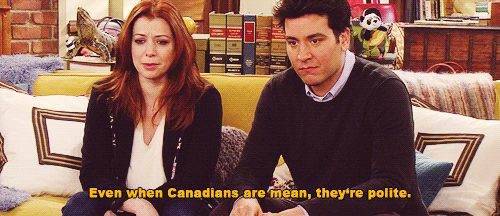
Aside from the obvious perks, it’s also great to be fully invested in this nation’s future. After struggling to get here and living here for so many years, it’s a wonderful feeling to know that you are now a citizen and belong to this country’s unique mosaic.
So now that you know my citizenship story, what was yours like? For those of you born Canadian, what has your experience been?
Succeeding in the Moment
In only five years since moving to Toronto from Lahore, Pakistan, Momin has accomplished what many international students strive to achieve.
Why did you come to Canada? And why Toronto specifically?
I moved to Toronto for university. I chose U of T because of the variety of disciplines that i could study and because it represented an opportunity to be immersed in a truly global environment.
What do you do now?
I’m currently head of community and social media at UrbanToronto, which a news website focusing on real estate development, urban politics and city-focused news. My undergraduate degree is in Urban Studies and Economic Geography, and I have work experience in both the digital media and non-profit environs so the position was a great fit for me. It allows me to use my city-building background and digital media interests at the same time.
Biggest struggle you faced when you first came to Toronto?
My biggest struggle was adjusting to the differences between Canadian and American culture. Having grown up on american pop culture and having also lived there as a toddler, I didn’t know how different Canadian culture to be. I was wonderfully surprised to find that Canadian culture is warmer, more welcoming and has a commitment to inclusivity and diversity unparalleled amongst major developed nations.

What shocked you the most when you came here?
What shocked me most about Canada was the high amounts of visibility that minorities have in society here. The immersion process and how it can work successfully was a pleasant surprise.
What do you like most about Toronto?
The pace. It’s both fast and slow at the same time, which is rare for a city as booming as it is.
Any tips for newcomers or refugees coming to Toronto?
Have an open mind – without it you may cut yourself off from what makes life here so attractive.
Let’s Talk Politics
If you were anything like me, it’ll take a while before you get around to figuring out Canada’s political system. So how does politics work here? Let’s start from the top shall we…
Federal Government

The federal government is the highest level of government in Canada. This means that decisions made at this level will impact Canadians all over the country.
Most of you are probably aware of our head of government, Prime Minister Justin Trudeau. Although he’s only been in office for less than six months, he’s already pretty popular outside of Canada (“pretty” being the key word here).
That being said, Canada’s official head of state is still the Queen of England. This is because Canada remains part of the Commonwealth (territories previously part of the British empire). And while it explains why her image graces Canadian currency, the Queen also does some other things that benefit our country.
The federal government also consists of the House of Commons, with elected representatives known as Members of Parliament (MPs). Basically, the House of Commons makes Canada’s laws, which are then reviewed by the Senate (who are selected by the Prime Minister). You can find your MP and read more about parliament’s shenanigans here.
Provincial Government

The next level of government makes decisions that affect our province, which in this case is Ontario.
In a nutshell: instead of a Prime Minister, there’s a Premier who is the head of government in Ontario. And instead of MPs, there are Members of Provincial Parliament (MPPs).
The provincial government is important because it has exclusive jurisdiction over public life that the federal government cannot interfere with (important information if you ever want to differentiate between your MP and MPP).
This also means that education, hospitals, welfare, and other policies can differ between provinces. A good example of this is the different ways alcohol is sold across the provinces. Ontario just approved the sale of beer in grocery stores last year, so that’s good news for us.
Municipal Government

The final level of government is the municipal government, which deals with everything Toronto related. Residents of the city of Toronto elect a mayor and council members who lead local government and make decisions about transit, infrastructure, libraries, parks, and garbage disposal (to name a few).
The municipal government is perhaps the most accessible level of government for residents, since members of the public can readily present their concerns to councillors at committee meetings.
Our current mayor is pictured on the left, but you’ve probably read in the news recently about the death of our previous mayor, Rob Ford. Love him or hate him, there’s no denying he was an interesting character who generated quite a bit of scandal in his heyday.
So there you have it. What are your thoughts on Canada’s political system? How does it differ from your own country? Do you think Justin Trudeau uses a liberal amount of shampoo (ha-ha)?
Side note: Political parties are another thing to be aware of, but I won’t touch on them here. It’s enough to know for now that Trudeau and Wynne are Liberal, and Tory is Progressive Conservative.
Goodbye Bogota, Hello Toronto
Catalina moved to Toronto from her hometown of Bogota, Colombia seven years ago. Read her story, and find out where life in the 6ix has taken her since.
Why did you come to Toronto?
My step-dad had a job opportunity here through his brother. Also, my parents were aware that opportunities are very limited back in Colombia, and security was a huge concern for them. I also think we came here because Toronto is one of the largest cities in Canada, so there are more opportunities too.
What do you do now?
I’m currently finishing my undergrad in Architecture at Ryerson University. I will start looking for jobs in the near future. One of the problems is that there aren’t enough job offers right now, and competition is very high too.
What was the biggest struggle you faced when you first came here?
We were fortunate enough to not have any big issues. Perhaps a language and cultural barrier. However, I found that locals are very open and understanding.

Have other members of your family faced difficulties moving here?
After we immigrated to Toronto, two of my uncles came here within the following two years. They have had more issues. One of them came with a student visa, but his process to become a Permanent Resident has been extremely long and unstable. The government changes its policies very often, making it harder to be up-to-date with the documents, time requisites, etc.
My aunt came here through the medicine plan, in which professionals with a medical background are more welcomed in Canada. However, she has been unable to practice medicine. She has presented exams in different parts of Ontario, and is still being denied.
What shocked you the most when you came here?
Something that still shocks me is the consumption and waste generation. Even though there is a lot of publicity about being green and recycling, people have very little environmental concern. Moreover, the consumption of goods…the consumerist culture here is just too much!
Do you ever go back to Colombia?
I’ve been to Colombia three times after I moved here. Everything feels different! The people, the social rules, the traffic, the lifestyle, security, everything. It feels like I’m not Colombian anymore. However, my family and I still have some of the Colombian traditions, with a mix of the Canadian culture. It’s like we don’t really have one specific culture defined anymore. After seven years, my family and I still feel like immigrants in Canada. But if we go back to Colombia, we would also feel like ones.
Any tips for newcomers coming to Toronto?
Just from family and friends’ experiences, the start might be rough, but people need to be open for new opportunities. The city is very expensive too, so bring a lot of savings!

How Well Do You Know Toronto?
Last week, my friends and I quizzed each other on some crazy Toronto trivia. Below is the filmed footage for your viewing pleasure (I’m the first one to appear on the left).
Play along and let me know how many you got right!
Full disclosure: This video was created for our Digital Communications and Social Media Strategy class at the University of Toronto School of Continuing Studies. It was filmed and produced within two hours, and was required to be approximately two minutes in length.
A Newcomer’s Guide to the TTC
If you’ve recently arrived in Toronto, chances are you’ve already come across our beloved transit system, the TTC. But before you embark on exploratory adventures around our great city, it might be worth your while to learn more about the “red and white menace” that is the Toronto Transit Commission:
Simple and Sweet?
One of the first things you’ll notice when you start using the TTC subway, is the relative simplicity and ease needed to navigate its route compared to other transit systems in large metropolitans (just take a look at London’s compared to ours).
This is both a blessing and a curse. While the simplicity makes it quite easy to navigate the subway line and it’s major connecting stations, it also means that access to certain areas is somewhat restricted. Anything beyond the subway line will require taking another vehicle, and not all subway stations offer accessibility services (this is what the TTC looks like if you’re in a wheelchair). Few connecting stations and no relief line also makes for a VERY crowded commute during rush hour, so it’s always best to avoid the TTC during those peak hours when possible.
Paying for Your Ride

Currently, there are three main ways to pay for the TTC. You can pay per ride using cash, buy a set of tokens for a slightly lower fare, or buy a weekly/monthly metropass that will give you unlimited access for that time. Yes, the fares are high, so choosing which type really depends on your needs.
One thing to keep in mind: if you plan on taking a connecting vehicle (e.g. train to bus), don’t forget to take a transfer when you pay your fare! TTC staff are not lenient on this matter, and I’ve wasted many a token by simply forgetting to ask for a transfer when I got on the bus. Be sure to take a look at this simplified explanation on how to use transfers.
You’ll also see green Presto machines in front of the turnstiles at some subways stations and in the new streetcars. Don’t worry too much about these unless you plan on using the GO Transit to travel to other areas in the GTA. The city plans to phase out tokens in favour of Presto cards by the end of 2016, but I wouldn’t hold my breath.
Subway Etiquette
When I first started using the TTC, I was unaware of the unspoken “rules” that govern commuters—especially during rush hour periods when trains and buses are packed. It’s natural to not be instinctively aware of these rules, especially if you come from a country with a horrid transit system like mine.

But don’t worry, you’ll figure it out soon enough. Some of the rules are obvious, like offering your seat to a pregnant woman or a senior, and some of them aren’t as clear cut, like not standing in front of the door when there is room elsewhere.
To help clear things up, here’s a comprehensive list of things you should avoid doing on the TTC.
Delays Are the Norm, Not the Exception
Another thing to keep in mind is that delays are part and parcel of the TTC experience. Sometimes your subway commute will be riddled with delays along the way. Sometimes you’ll be told to exit the train at a station and wait for another one. And sometimes you’ll wait an hour for a bus, only to have three arrive at the same time.
I can only say that time heals all wounds. These delays do get aggravating at first, especially when they close down the subway lines for repairs, but don’t take it to heart. Whether it’s because of a signal delay or because someone pulled the emergency assistance alarm, everybody goes through it, and over time you’ll get used to this TTC quirk.
Strange Things Happen in Those Tunnels…
Many strange (and sometimes dangerous things) have happened in the TTC since I started using it six years ago.
To name a few: raccoons have taken subway rides, Union station was closed due to flooding, a child fell through the subway gap, and a woman was dragged across the platform while trying to save her purse that was caught between the train doors.
So while it’s a great time to be travelling on the TTC, always be aware of your surroundings! You never know what you’ll come across if you’re not paying attention…
*This post is dedicated to the voice of the TTC, Danny Nicholson. Nicholson retired today after warning riders to be safe and courteous over the public address system for over 16 years. Read his story here.
Helena’s Story: From House to Hospital
Occasionally, I’ll post a profile of a recent immigrant to Toronto (ten years or less), along with stories of their struggles, successes, and advice to newcomers. Here is the first.
Name: Helena
Country of origin: Jakarta, Indonesia
Time in Toronto: Six years
Why did you choose to come to Canada, and Toronto specifically?
Because Canada has the same values that I believe in. Toronto is the money capital of Canada, and my thinking was it would provide more opportunities if we were to start from the ground up.
Biggest struggle you faced when you first came to Toronto?
Trying to break into the job market; I was totally clueless as to how to build a proper resume. I was a homemaker for 20 years before I came here, and was trying to start over with just a high school diploma!
What do you do now?
I am an administrative assistant in a hospital setting. It started out as volunteering as part of my internship for a diploma program I was doing at Herzing College. I stayed for seven months volunteering in various administrative offices when an opportunity broke open. It was a temporary seating for a secretary going on her honeymoon for 3 weeks. She was an assistant to a surgeon.

So how did you go from there to a full-time position?
I guess it matters a lot when you are not just doing your job because it is required of you, but also to show your dedication and intention to actually make improvements because you care. I gave my best, and the surgeon actually wanted me to stay in their department. Another opening happened to materialize, and I got the interview. It was a part time position, and I got a probationary month. I came in everyday, as in working full time, but was hired part time. I did it because I wanted to get the job done well. I guess the efforts and attitude showed, and by the third month I was offered a full-time permanent position.
From then on, it got busier, I learned more, and another responsibility, a challenging one was added, almost a year into the job. I was assigned to run a sub specialty clinic with 7 doctors in the team. I am into the fourth year now, and am still learning and developing new systems to match the speed at which the clinic is expanding.
How have other members of your family adjusted?
They have adjusted really nicely and quite effortlessly. My eldest is working as a clinic assistant in a community health centre while continuing her French, and her sister is pursuing her master’s degree.
What do you like most about Toronto?
It’s pace and busyness– The sense that working hard will bring results.
Any tips for newcomers coming to Toronto looking to find work?
If I look back now, it was not experience that put me where I am today. It was determination and strong conviction that I could be a great contribution, that I could make things better. The volunteering part is important because you get to know what is required for a job, and of course you have to like the nature of the job.
I guess the key is never to stay comfortable, the challenges you face can be the stepping stones to more success. You also have to be willing to learn and change. Every country has its own culture, so you have to be open to adjust with the existing standards in order to be accepted.
Welcome to Toronto!
When I first came to Toronto six years ago, I faced challenges that most new immigrants faced. Trying to find a place to live, figuring out how to get around, what winter wear to buy, how to fit in–you get the picture.
With that in mind, I started this blog as a way to help the expected rush of immigrants coming to Toronto adjust to their new, and often unexpected, lives.
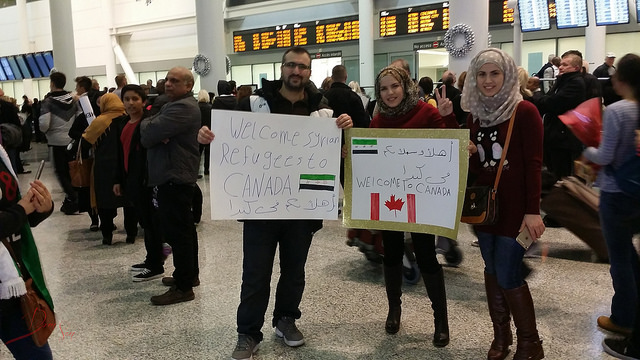
Every week I will be posting about an issue or topic that will help people become acquainted with Toronto, as well as sharing my own experiences on how to get by.
I will also be posting a profile of a recent immigrant (approximately ten years or less) and their accomplishments every two weeks or so. While this does provide insight into the struggles faced by newcomers in Toronto, it also serves as an advice forum- sharing stories from one immigrant to another, so to speak.
Above all else, the purpose of this blog is to encourage those who have come here to strive for greatness, and to remain positive of what the future holds for them and their families (regardless of what life throws at them).
I mean, this is Toronto after all, where anything is possible.




